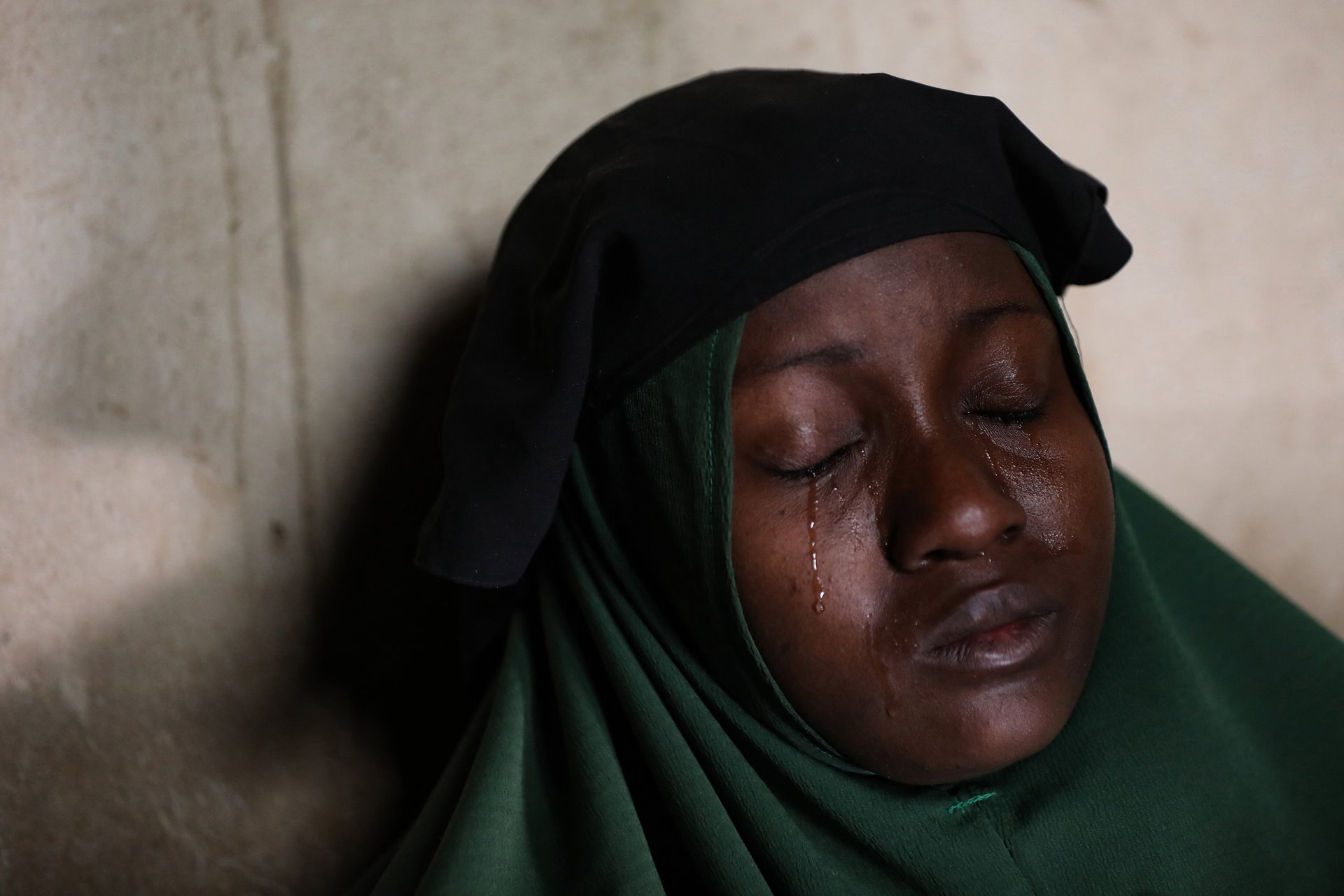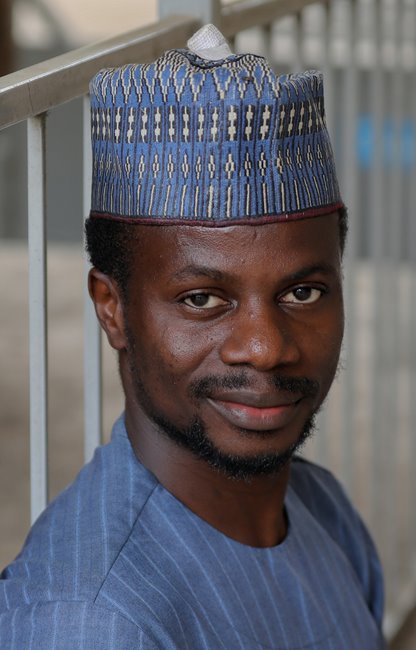Aminah Labaran (not her real name) cries at home, in Jangebe, Zamfara State, northwest Nigeria, the day after her two daughters were abducted. Gunmen, apparently from a bandit group, snatched 279 girls from dormitories in the middle of the night, at the Government Girls Secondary School in the village.
Nigeria is facing severe education challenges, as kidnappings of students for ransom by Islamist groups and armed gangs continue to impact schools in the north of the country. President Muhammadu Buhari has stated that more than 12 million children, girls in particular, are currently traumatized and fear going to school. This can contribute to many girls being taken out of school to work, or forced into marriage, according to Human Rights Watch. UNICEF reports that Nigeria has the highest rate of child marriage in West Africa, with 22 million women and girls married before the age of 18.
The first mass school abduction in Nigeria took place in April 2014, when members of the Islamic extremist group Boko Haram kidnapped more than 200 girls from a government boarding school in Chibok, Borno State, in the northeast of the country. A Bring Back Our Girls global campaign led to international protests and contributed to wider discussions about girls’ and women’s access to education. Kidnappings have continued and now extend to boys, too, yet have largely fallen from international media attention. Boko Haram as well as other jihadist groups kidnap students to oppose Western secularism; other gangs do so in the hope of gaining quick cash through ransoms. Hostages have also been used to bargain for the release of imprisoned Boko Haram members.
The photographer has witnessed a relative navigate the trauma of kidnapping in Nigeria. Names of the people in the photographs have been changed to protect their privacy and guard against repercussions.
Keep in touch - Sign up for our newsletter for inspiring examples of the best photojournalism and documentary photography.

